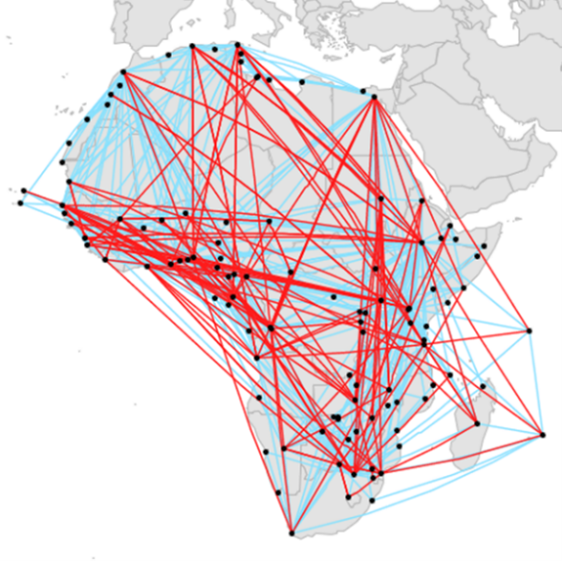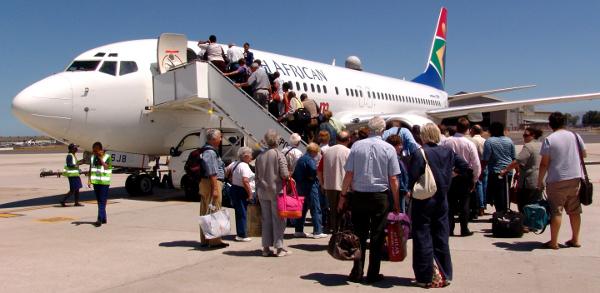Introduction
Sustainable development of the air transport sector in the Eastern and Southern Africa will improve the quality of air transport services through improved efficiency, direct routing, improved connectivity and reduced fares.
This will stimulate the demand for air transport services and increase the use of this mode of transport. Increased demand for air transport services will contribute to increased direct, indirect and induced employment through the positive impact on downstream aviation sector industries which are sources of inputs like fuel, spare parts, consumables, equipment and other services.
Other sectors of the economy that will benefit are the tourism sector, industrial and trade sectors which rely heavily on air transport. Growth of these sectors will positively contribute to GDP growth, with more citizens being able to afford air travel especially given the potential reduction in airfares.
The huge size of the continent, and the region in particular, and its many physical barriers coupled with limitations in land-based transport infrastructure will make air travel the preferred mode.
The convenience to travel and vibrancy of the aviation sector will attract investment to the EA-SA-IO region, a development which will boost production, employment, incomes and GDP per capita. Thus, economic growth and development will be supported. This will sustain the demand for air transport services and promote investment in the sector. The sector will thus be able to generate revenues and achieve profitability levels to facilitate reinvestment of retained earnings.
Regional Economic Communities recognise that sustainable development of the air transport sector is fundamental in achieving the aspirational goal of regional integration through economical and sustainable development of the natural and human resources for the good of African people. In pursuit of this objective, COMESA and the European Union signed a Contribution Agreement to implement the Support to Air Transport Sector Development Program (SATSD) in the Eastern Africa, Southern African and Indian Ocean Region.
Objectives of the Programme
The overall objective of the programme is to contribute to the development of the air transport sector in the EA-SA-IO region.
The specific objectives of the programme are:
- Operationalize the Single African Air Transport Market;
- Strengthen regulatory and institutional capacity of civil aviation institutions in EA-SA-IO region;
- Improve air navigation efficiency in the EA-SA-IO region
Operationalization of Single Africa Air Transport Market (SAATM)
The Single African Air Transport Market (SAATM) is an African Union (AU) Agenda 2063 Flagship Project. SAATM seeks to create one single air transport market in Africa through full liberalization of intra-African air transport services in terms of market access, traffic rights for scheduled and freight air services by eligible airlines thereby improving air services connectivity and air carrier efficiencies.
To achieve this, the programme will undertake activities that will:
- Support the signing of solemn commitment by Member States in the EA-SA- IO region,
- Support the operationalisation of joint competition rules and regulations and
- Enhance capacity for a regional model for sustainable air transport market development.
Strengthening of the Regulatory and Institutional Capacity of Civil Aviation Institutions in the EA-SA-IO region
 For the air transport sector to grow and be able to effectively play its economic role, there is need to focus on air transport market integration which is supported by effective regulatory and operational institutions hence the need for reform, gender sensitive institutional reforms and strengthening of aviation institutions, enhancement of managerial and technical capacity of the aviation sector, including gender equity aspects. Functional separation between CAAs and air navigation services (ANS), will be key to promoting effectiveness, transparency and accountability. This will enable the EA-SA-IO member states to be better placed to comply with international aviation requirements and to compete at global level. Development and review of national legislation will be necessary to facilitate the reforms.
For the air transport sector to grow and be able to effectively play its economic role, there is need to focus on air transport market integration which is supported by effective regulatory and operational institutions hence the need for reform, gender sensitive institutional reforms and strengthening of aviation institutions, enhancement of managerial and technical capacity of the aviation sector, including gender equity aspects. Functional separation between CAAs and air navigation services (ANS), will be key to promoting effectiveness, transparency and accountability. This will enable the EA-SA-IO member states to be better placed to comply with international aviation requirements and to compete at global level. Development and review of national legislation will be necessary to facilitate the reforms.
To achieve this, the programme will undertake activities that will:
- Support the separation of Civil Aviation Authority regulatory functions from operational functions
- Enhance managerial and technical skills for aviation oversight
- Improve gender sensitivity and environment mainstreaming in the aviation sector
Improved air navigation efficiency in the EA-SA-IO region
Seamless operations support aviation sector development in terms of market integration through improved air navigation efficiency and safety. Improved air navigation efficiency has a positive impact on costs, safety, travel time, connectivity and the environment. There is need to put in place regional frameworks and procedures for seamless operations supported by the right infrastructure and equipment, flexible use of the airspace, resource and information sharing. There is need to create awareness of the importance of the flexible use of airspace and training on its actual implementation. Establishment of aeronautical regional databases will enhance information sharing required for seamless operations. There will also be a need to adhere to the regulatory framework as espoused by ICAO. The programme will support member states in the implementation of the ICAO Standards and Procedures as they relate to seamless operations.
To achieve this, the programme will undertake activities that will:
- Enhance airspace coordination for Regional Seamless Upper air space
- Enable data sharing through centralised regional aeronautical information databases.
Financing
SATSD is a four-year programme financed by the European Union under 11th European Development Fund.
Scope
The programme is being implemented by five Regional Economic Communities (RECs): East Africa Community (EAC), Southern African Development Community (SADC), Indian Ocean Commission (IOC), Intergovernmental Authority on Development (IGAD) and Common Market for Eastern and Southern Africa (COMESA). COMESA is the lead REC of the programme.

